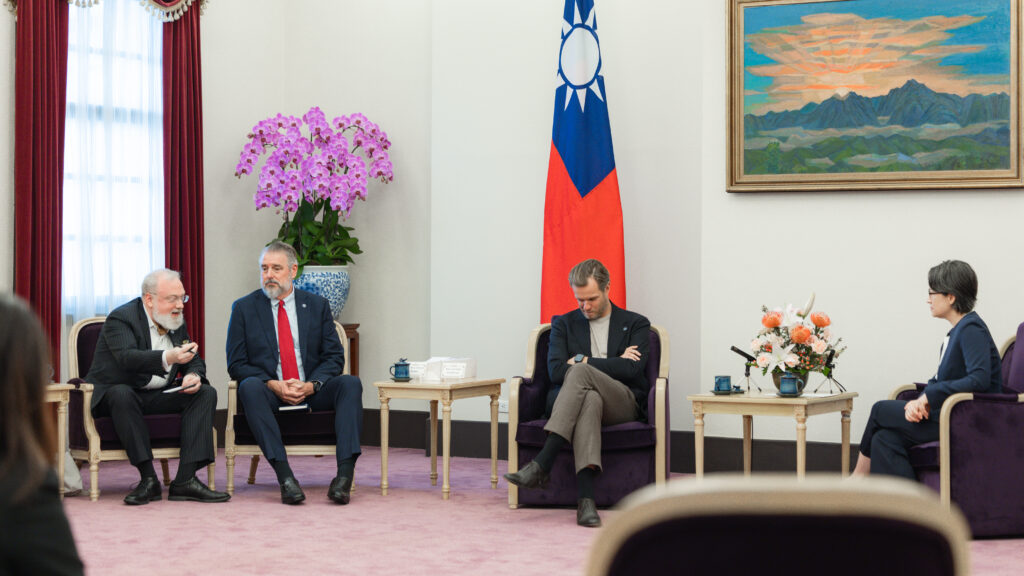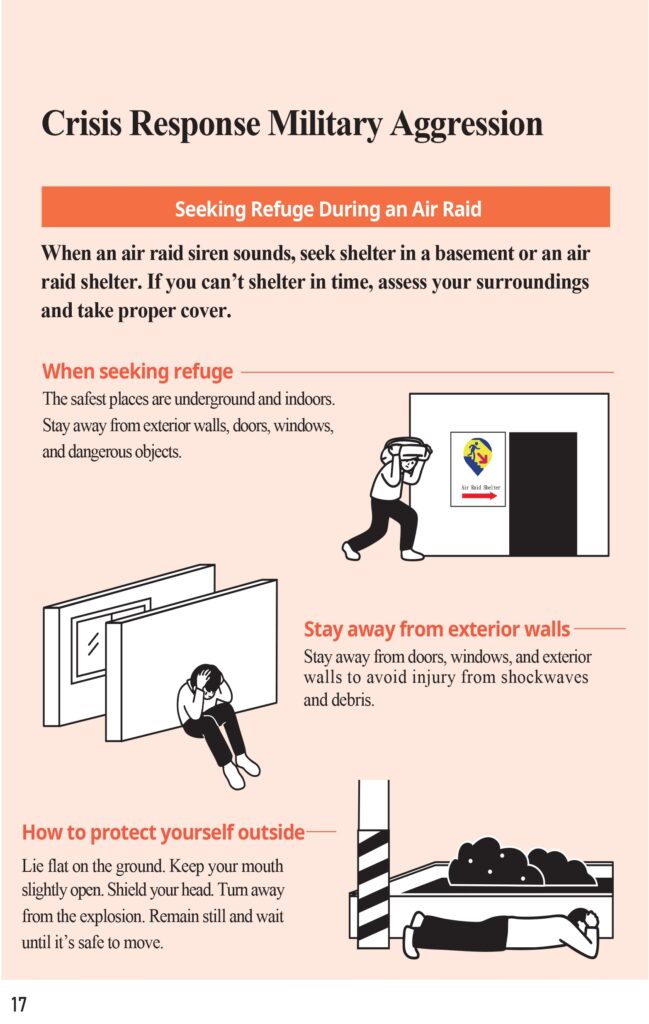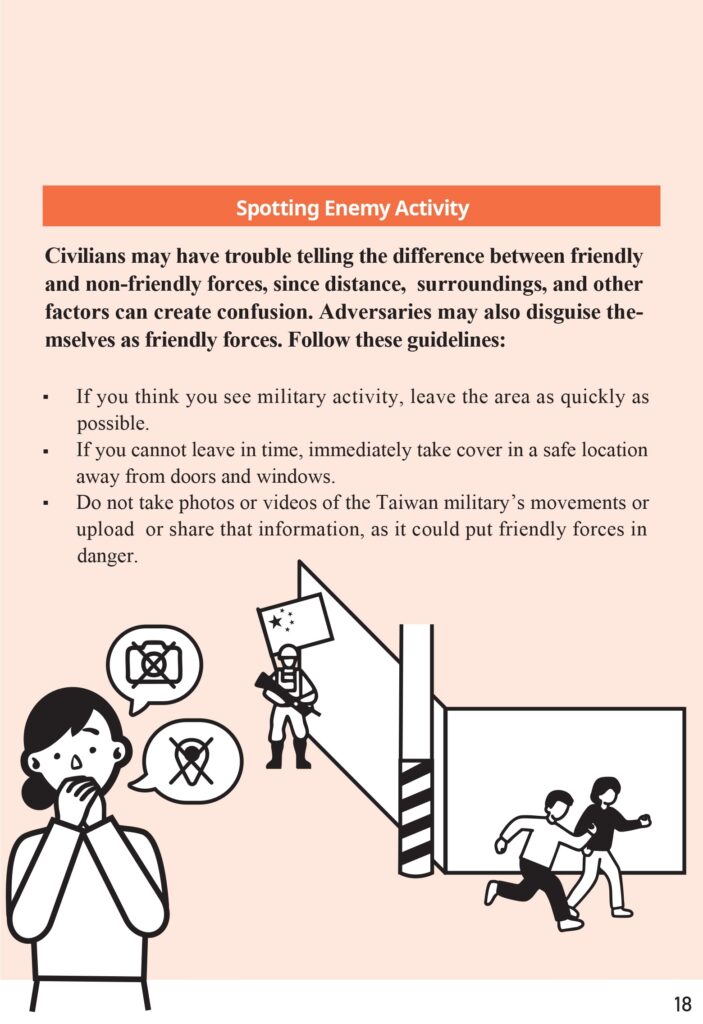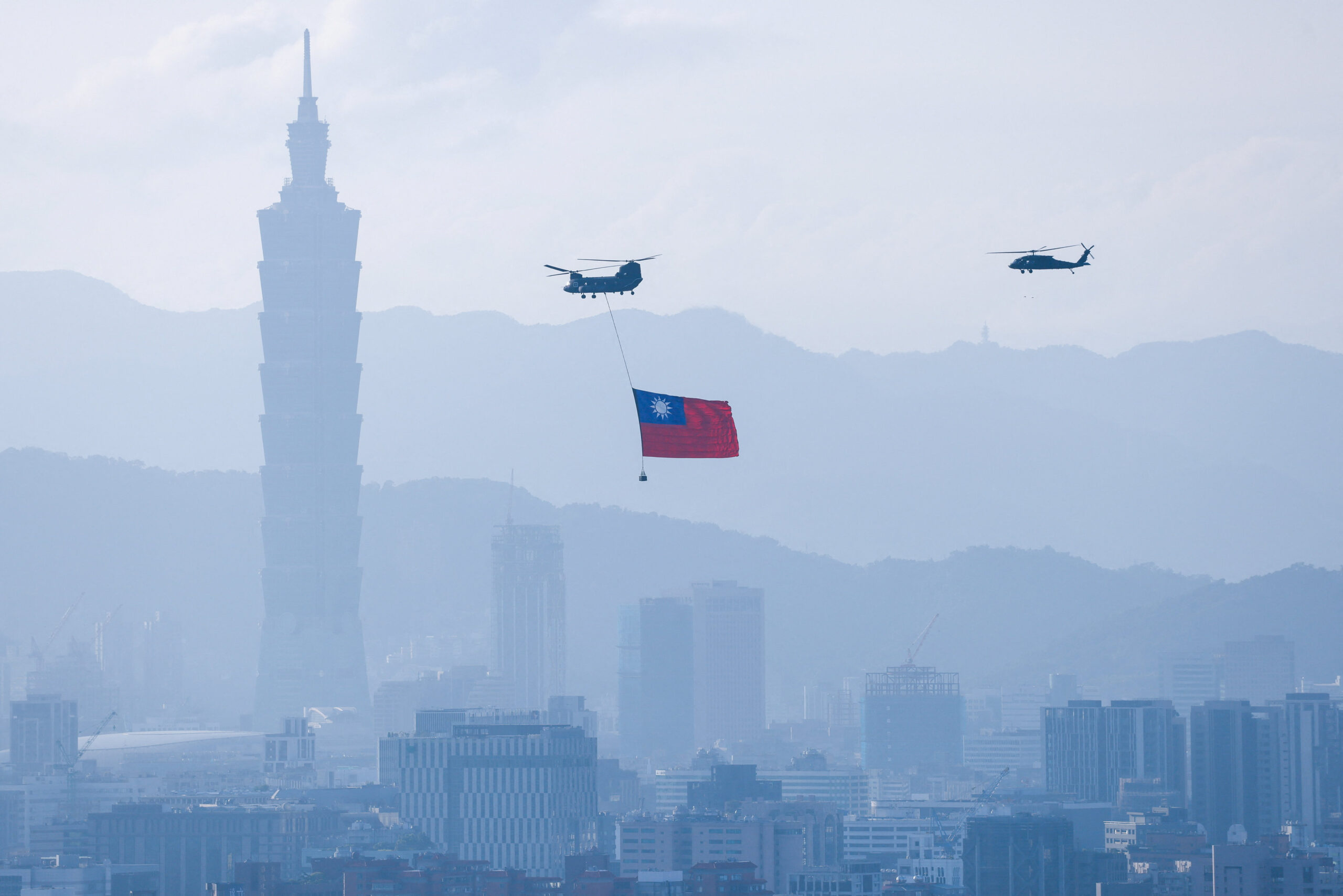TAIPEI—I landed in Taiwan amid a war—fortunately, only a war of narratives so far. What I found during my visit was very different from what this narrative war would suggest. My observations underscored the need for the United States and its friends and allies to encourage and enable Taiwan to increase military self-reliance. At the same time, Taiwan’s friends should demonstrate an expanding international capability and willingness to aid Taiwan’s defense if China attacks—as with the political and military moves Japan is taking under Prime Minister Takaichi Sanae.
I arrived in Taipei just before US President Donald Trump’s latest trip to East Asia, amid worries in Taiwan and in Washington that he would “sell out” Taiwan during his meeting with Chinese President Xi Jinping in South Korea. These worries proved to be overblown, with Taiwan apparently going unmentioned in the meeting, according to Trump. Meanwhile, other Americans have worried that the United States will be dragged into a supposedly unwinnable war over Taiwan, particularly if Washington does not find a way to reach a “stabilizing” accommodation with Beijing over Taiwan and restrain Taipei.

Click on the banner above to explore the Tiger Project.
As part of this debate, two misleading lines of attack against Taiwan’s leadership have swept through Washington policy debates in recent weeks. Both incorrectly paint the self-ruling democracy as a liability to US security, but each comes at it from a different angle.
One line of attack is that Taiwan’s ruling Democratic Progressive Party is provoking Beijing and may trigger an attack through an ill-considered declaration of independence, which would then drag the United States into a war with China. This view is exemplified by researcher Lyle Goldstein’s recent TIME magazine essay, provocatively titled “The U.S. Must Beware of Taiwan’s Reckless Leader.”
Another line of attack is that Taiwan is fundamentally unserious about its defense. Some proponents of this view argue that Taiwan is too entrenched in conventional approaches to warfare; others that it’s unwilling to spendenough; and yet others that it is too deeply polarized politically to mount an effective defense. This leads critics to claim that Taiwan lacks the will to face China’s threat and is “free riding” for security on the United States.
In this context, I was determined to make my own conclusions when visiting Taiwan as part of an annual high-level Atlantic Council delegation, which this year included a former Lithuanian foreign minister who managed Vilnius’s contentious relationship with Beijing, a retired US Air Force general famous for his strong views on preparing for war with China, and one of South Korea’s top defense scholars writing on the connection between deterrence for Taiwan and for Korea. During our visit, we spoke with leaders from industry, think tanks, and the highest levels of government—including Taiwan’s foreign minister, several top defense ministry and military officials, the secretary-general of its national security council, and its vice president.

What I found was enlightening and quite different from the critiques in Washington. For one, Foreign Minister Lin Chia-Lung expressed his concerns to us about the misrepresentation of Taipei’s stance, assuring us that the Lai administration was not seeking to provoke Beijing and that it would maintain the status quo. I appreciated the official clarity, but this was not much of a surprise upon analysis, particularly as this tracks with Lai’s public statements and Beijing’s history of accusations. Claiming unacceptable provocation from a democracy is a staple of the propaganda Russian President Vladimir Putin, North Korean leader Kim Jong Un, and Xi have used to justify their aggression. Despite the alarmism of some US authors and the claims of Chinese Communist Party (CCP) propagandists, why would a democratically elected government, whose stated policy is to maintain the current status quo of “self rule”—a status quo supported by the majority of its population—take the reckless step of declaring independence? Rather, it is Xi who has sought to effect change via Chinese Communist Party (CCP) propaganda to portray restating and maintaining the status quo as provocative and unacceptable separatism.
The second line of criticism—the one critiquing progress on Taiwan’s preparedness for war—was also largely debunked by what I encountered. There is no question that Taiwan is deeply divided politically, and Taipei has a ways to go to reach its goals. For example, it does need to further increase its defense budget. It does need to fully establish its asymmetric defenses against a Chinese invasion. And it does need to solidify its whole-of-society resilience against Chinese pressure and a potential blockade or invasion. However, Taiwan’s progress in these areas over the past three years is clear: It has increased military spending, made changes to military training, expanded military exercises, enacted new policies, and established new governmental structures with relevant responsibilities and new authorities.
This progress has encompassed both the private and public sectors. We visited companies making airborne and seaborne combat drones, which are essential in modern warfare. We also visited the “All Out Defense Mobilization Agency,” which is responsible for both military reserve mobilization preparedness and for interagency coordination to better prepare Taiwan’s public for conflict. We received English translations of Taiwan’s new “In Case of Crisis” handbook for the public, which, for the first time this year, explicitly included instructions for the general civilian population on what to do in the event of a Chinese military attack.


I also noted a clear willingness to challenge and overcome the domestic political factors that had led to Taipei’s past reluctance to publicly emphasize these dangers and the government’s plans to respond to them. Despite fears that it might panic the population, Taiwan proceeded this summer with simultaneous exercises, including military forces in urban areas, in parallel with urban resilience exercises for civilians. Far from panicking, Taiwanese appear to be taking preparation for the possibility of war as matter-of-factly as they prepare for a typhoon or earthquake. These are huge steps in the right direction.
In my discussions, I found that the broader question of Taiwan’s perceived “will to fight”—and how it affects Washington’s willingness to support Taiwan’s defense—can be a bit of a circular problem. The United States is less likely to commit to fight unless it can be sure Taiwan will effectively resist a People’s Republic of China (PRC) attack, while analysis of polls suggests that some Taiwanese would be less willing to fight if they lack confidence in US support. However, based on both polls and the level of commitment we witnessed, the current government in Taiwan, its military, and a major portion of its population would almost certainly fight if the PRC attacked. Several of the experts we spoke with assumed that a major attack by China could require a week or two of Taiwan fighting in isolation, largely on its own, before the political and military situation allowed for a breakthrough to support the island—and perhaps longer before supply lines could be fully restored.
Taiwan’s people, their democratically elected government, and their military forces are, in my view, not eager to provoke a fight. But they are willing, and increasingly able, to fight if that’s what it takes to preserve the status quo of democratic self-rule. Despite elements of shared culture, centuries of shared history pre-1949, and familial and economic ties with the mainland, Taiwan’s government, military, and the majority of its population appear to be rising to the challenge. However, it may not be fast enough, in part due to hesitation engendered by the desire to avoid provoking Beijing or to be seen by Washington as doing so. In fact, Washington should be more worried about Taiwan showing too much restraint and moving too slowly in preparing for war or responding to PRC aggression, due to concerns of eliciting domestic and international pushback, than about Taipei recklessly dragging its partners into war. Certainly, Taiwan should keep its cool and show restraint, and it should avoid being goaded by Beijing into overreacting in ways that would give China a political justification to attack. And it should avoid declaring its “independence.” But it must not hesitate to take the steps necessary to prepare to defend itself, and the United States must take appropriate steps to help, even if some will claim these steps are “provocative.”
Even so, Xi may not see time as on his side. In my discussions with those in Taiwan, many have emphasized that they are rapidly developing a Taiwanese identity distinct from the communist-controlled mainland of China, despite elements of shared language and culture that pre-date the Communist rule of the mainland. Meanwhile, the status quo of self-rule is becoming increasingly entrenched. This could well make the peaceful acquiescence of Taiwan to the CCP more and more implausible over time. Based on the current rate of Taiwan’s progress, even the rapid military subjugation of the island will grow more risky, costly, and implausible—regardless of how much the CCP invests in its own military.
If that is true, then Taiwan may be approaching a window of maximum danger, in which Xi may decide it is “now or never” to use force. Therefore, now is the time to make sure that Taiwan has the support it needs to be politically and militarily ready to defeat an initial attack and remain resilient in the face of pressure.
It’s in the interest of the United States and its friends and allies—in NATO and the Indo-Pacific—to help Taiwan help itself to avoid a war through deterrence. This effort starts by countering misleading narratives about Taiwan’s leadership. Despite critics who are intentionally or unintentionally pushing narratives that favor the CCP’s framing, the real risk is not a reckless Taipei that incites aggression against itself or an irresolute Taipei that fails to prepare its own defenses against invasion. The true danger is Beijing believing that it could isolate Taiwan militarily and politically, then either force Taipei to surrender or achieve a rapid military victory, all before the United States can muster the domestic and international political will and military power to counter PRC aggression. The dangerous leadership threatening regional stability is in Beijing, not Taipei.
Note: The Atlantic Council delegation’s visit to Taiwan was supported by the Taipei Economic and Cultural Representative Office (TECRO). This analysis represents the author’s views and not those of the government of Taiwan or those of any other entity.
The Tiger Project, an Atlantic Council effort, develops new insights and actionable recommendations for the United States, as well as its allies and partners, to deter and counter aggression in the Indo-Pacific. Explore our collection of work, including expert commentary, multimedia content, and in-depth analysis, on strategic defense and deterrence issues in the region.

